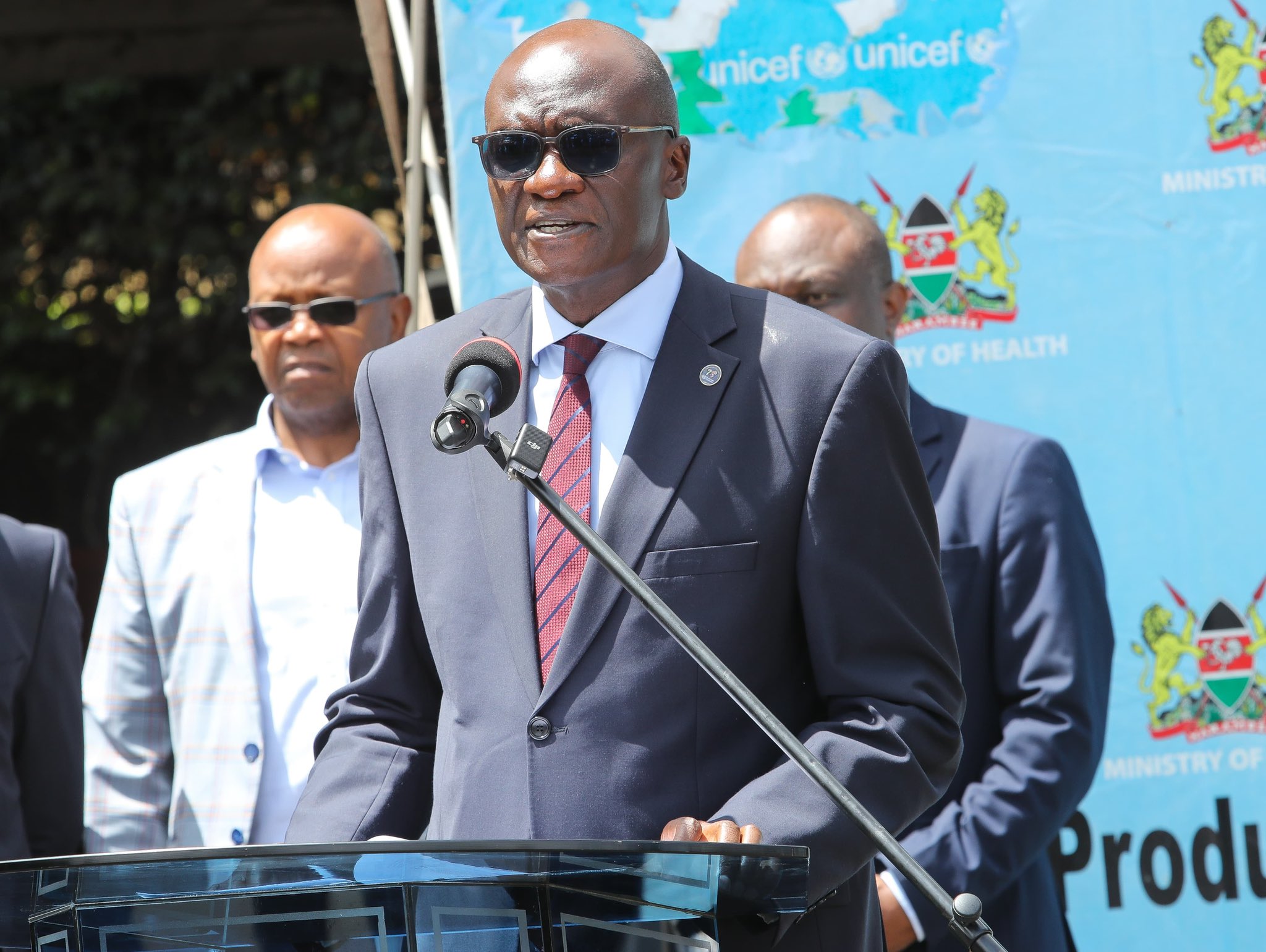
 Director General of Health Dr Patrick Amoth during a press briefing at Afya House, Nairobi, February 12, 2025. /MOH
Director General of Health Dr Patrick Amoth during a press briefing at Afya House, Nairobi, February 12, 2025. /MOHThe Ministry of Health is calling on parents to ensure their daughters aged between 10 and 15 years receive cervical cancer vaccine as the government ramps up the fight against the disease that continues to claim thousands of lives annually.
The latest GLOBOCAN 2022 report indicates that Kenya records 5,845 new cases and 3,591 deaths annually, making cervical cancer a significant public health challenge.
Speaking during a press briefing at Afya House on Wednesday, Director General of Health Dr Patrick Amoth said in response to the worrying statistics, the Ministry of Health is committed to reducing the burden through targeted prevention and awareness campaigns.
“Early detection and vaccination are life-saving interventions,” Amoth said, calling on healthcare professionals, parents, and the media to play an active role in raising awareness and debunking myths surrounding cervical cancer.
“We must work together to ensure that women have access to these critical services,” he said.
The World Health Organisation (WHO) envisions that sustained cervical cancer vaccination can end the disease within a few generations.
As part of the National Cervical Cancer Awareness Month (NCCAM) 2025, the Ministry launched a series of initiatives aimed at strengthening awareness, promoting early screening, and enhancing community engagement.
These include nationwide advocacy campaigns, partnerships with the STOP Cervical Cancer Coalition, and training programmes for healthcare workers on the latest advancements in cervical cancer management.
Amoth said the government under the National Immunisation and Vaccine Programme (NVIP) and the National Cancer Control Programme (NCCP) is working to facilitate vaccine availability.
He said a key milestone is the transition to a single-dose HPV vaccination regimen, which offers effective protection against the human papillomavirus (HPV), the primary cause of cervical cancer.
The DG, however, said despite progress, challenges such as misinformation and limited access to healthcare services in remote areas remain.
He however expressed confidence that sustained collaborative efforts will lead to a significant reduction in cervical cancer cases and deaths in the coming years.
“The ministry’s renewed focus on prevention and early detection underscores Kenya’s commitment to safeguarding women’s health and achieving long-term progress in the fight against cervical cancer,” he said.










![[PHOTOS] Guardian Angel bus catches fire in Kikuyu](/_next/image?url=https%3A%2F%2Fcdn.radioafrica.digital%2Fimage%2F2025%2F04%2F58287f0a-f201-4a78-87f0-6f147ad8ba8a.jpg&w=3840&q=100)


